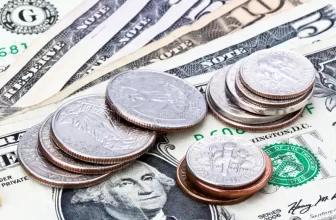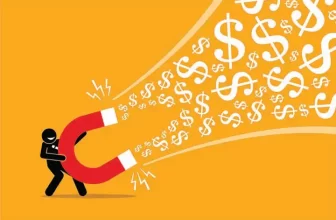
10 Secrets Forex Brokers Don’t Want You to Know
Introduction: Let’s Uncover the Hidden Truth
Have you ever wondered what’s lurking behind the shiny world of Forex trading? Are there secrets your broker doesn’t want you to discover? Well, buckle up, because we’re about to expose the 10 most astonishing secrets Forex brokers don’t want you to know! Ready to dive in?
Secret #1: The Market Maker’s Hidden Agenda
What’s a Market Maker, Anyway?
Ever heard of market makers? These entities are essentially the middlemen in the Forex market. They create a market for traders by buying and selling currencies at their own risk, making a profit from the spread between bid and ask prices. Sounds fair, right? Well, think again!
The Conflict of Interest
Market makers can manipulate prices to their advantage, and they have a vested interest in you losing money. How? They take the opposite side of your trade. So, when you lose, they win. It’s like playing poker against the house in a casino – the odds are stacked against you.
Secret #2: The True Cost of “Free” Trading Platforms
The Hidden Costs of “Free” Platforms
You might think you’re getting a great deal with a “free” trading platform, but there’s no such thing as a free lunch. Forex brokers earn money from the spreads and commissions you pay. While the platform itself might be free, the cost is hidden in wider spreads and higher fees, which can erode your profits over time.
The Solution: Compare Brokers
To avoid falling into the “free” platform trap, compare different Forex brokers and their fee structures. Look for tight spreads and low commissions. Remember, every penny saved is a penny earned!
Secret #3: The Slippery Slope of Slippage
What is Slippage?
Slippage occurs when the price you see when placing an order differs from the price you actually get when the order is executed. Sounds harmless, right? But it can significantly impact your bottom line.
Why Should You Care?
Forex brokers don’t want you to know that slippage can be a major problem, especially during periods of high volatility. The more slippage you experience, the more money you could lose. Make sure to use limit orders to control your entry and exit points and minimize the risk of slippage.
Secret #4: The Dark Side of Leverage
Leverage: A Double-Edged Sword
Leverage allows you to control a large position with a small amount of capital. It can magnify your gains, but it can also amplify your losses. Forex brokers often encourage traders to use high leverage, as it can generate more trading volume and increase their profits from spreads and commissions.
How to Tame the Leverage Beast
To protect yourself from the dark side of leverage, use it wisely and sparingly. Remember, slow and steady wins the race. Develop a risk management strategy and stick to it to avoid getting wiped out by a single trade.
Secret #5: Demo Accounts Aren’t Always What They Seem
The Demo Account Mirage
Demo accounts are a great way to practice your trading skills, but they might not accurately reflect real market conditions. Brokers often offer better execution and lower spreads on demo accounts to give you a false sense of security and entice you to trade with real money.
Transitioning to a Live Account
When transitioning to a live account, be prepared for differences in execution and performance. Take it slow, and when transitioning to a live account, be prepared for differences in execution and performance. Take it slow, and start with smaller position sizes to get a feel for the live trading environment. Remember, patience is key when it comes to mastering the Forex market.
Secret #6: The Reality of Stop-Loss Hunting
What is Stop-Loss Hunting?
Stop-loss hunting is a controversial practice in which brokers or large market participants deliberately push the price of a currency pair to trigger traders’ stop-loss orders. This can result in traders being stopped out of their positions, even if the market quickly reverses in their favor.
How to Outsmart Stop-Loss Hunters
To avoid falling victim to stop-loss hunting, use wider stop-loss levels and avoid placing them at obvious support and resistance levels. Additionally, consider using a trailing stop to lock in profits as the market moves in your favor.
Secret #7: The Myth of Guaranteed Stop-Loss Orders
What is a Guaranteed Stop-Loss Order?
A guaranteed stop-loss order (GSLO) is a special type of stop-loss order that ensures your trade will be closed at the exact price you specify, regardless of market conditions. Sounds too good to be true, right?
The Hidden Cost of GSLOs
While GSLOs might sound like a perfect risk management tool, there’s a catch: they often come with hefty fees or wider spreads. This can make GSLOs a costly option, especially for smaller traders. Be sure to weigh the benefits of GSLOs against their associated costs before using them in your trading strategy.
Secret #8: The Unseen Risks of Offshore Brokers
The Lure of Offshore Brokers
Offshore Forex brokers can offer attractive trading conditions, such as lower spreads, higher leverage, and tax advantages. But beware: there’s often more to the story than meets the eye.
All you need to know on how to protect yourself from avoid forex brokers scam.
H3: The Dangers of Going Offshore
Offshore brokers are often less regulated than their onshore counterparts, which can expose you to increased risks. In the event of a dispute or the broker’s insolvency, you might have little to no recourse. Stick with well-regulated brokers to protect yourself and your hard-earned money.
Secret #9: The Mirage of Forex Signals and Robots
The False Promise of Forex Signals and Robots
Forex signals and trading robots promise easy profits with minimal effort, but the truth is often far from the hype. Many signal providers and robot developers have little to no track record of success and may even use dubious practices to inflate their performance metrics.
The Solution: Learn and Develop Your Own Trading Strategy
Instead of relying on someone else’s “magic formula,” invest time and effort into learning how to trade and developing your own trading strategy. The knowledge you gain will empower you to make informed decisions and become a more successful trader in the long run.
Secret #10: The Importance of a Solid Trading Plan
The Missing Ingredient: A Trading Plan
Many Forex traders jump into the market without a solid trading plan, only to see their dreams of financial freedom go up in smoke. Forex brokers don’t want you to know that having a well-defined trading plan is a critical component of long-term success.
The Key to Success: Develop and Stick to Your Trading Plan
To create a successful trading plan, outline your goals, risk tolerance, and preferred trading strategies. Test your plan using a demo account, and refine it as needed. Once you’re confident in your plan, stay disciplined and stick to it – consistency is key!
Conclusion: Knowledge is Power
By uncovering these 10 secrets Forex brokers don’t want you to know, you’ve taken a significant step towards becoming a more informed and savvy trader. Remember, knowledge is power. Stay curious, keep learning, and never stop questioning the status quo.
Armed with this newfound insight, you’ll be better equipped to navigate the complex world of Forex trading and make well-informed decisions. Keep refining your trading strategy, stay disciplined, and always maintain a healthy dose of skepticism. Your journey to Forex success has only just begun!






